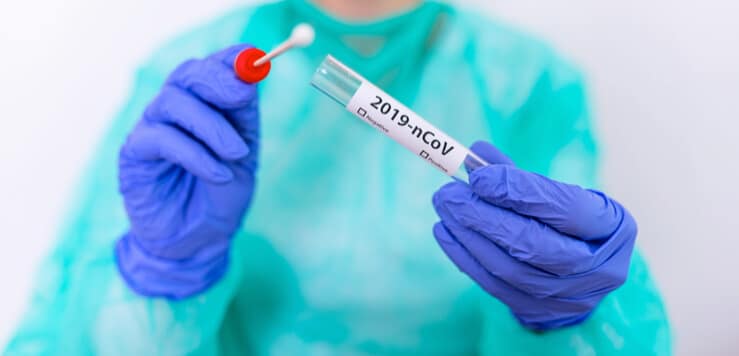If a casino employee tests positive for the COVID-19 virus, what is the balance between protecting the worker’s privacy and keeping colleagues and guests fully informed?
It’s one of many complicated issues created during this pandemic.
The Pennsylvania Gaming Control Board revealed last week that 40 positive COVID-19 tests had been reported at casinos across the state in the period between early June — when the casinos reopened at limited capacity after a two-month hiatus — and Aug. 9.
State media outlets sought a compromise, with no specific employees to be identified but with the number of cases per each casino to be disclosed.
But the board said that request would violate “employee confidentiality” and that the casinos are following state protocols.
Going by the book
“In each case, the casino’s pandemic officer reports the matter to the PGCB and the Department of Health the day the employee contacts their employer, the respective casino, to notify their employer that they were tested and the test was presumptively positive,” PGCB Communications Director Doug Harbach told reporters.
At that point, workers are not permitted to return to work until they are found to have recovered from COVID-19, per protocols.
Although the PGCB won’t share certain COVID-19 data, the casinos can self-report. Back on June 17, Rivers Casino, the first in the state to reopen, became the first in Pennsylvania to acknowledge an employee testing positive. The Pittsburgh property soon closed for a week, not necessarily because of that positive test or the two more that soon followed, but because of a county-wide spike in coronavirus cases.
In New Jersey, Borgata casino announced in late March that it had a table game dealer test positive just one day before Gov. Phil Murphy closed all nine Atlantic City casinos. Those properties did not open again until July 4 weekend, with Borgata postponing its limited reopening until three weeks later.
In Connecticut, Mohegan Sun casino announced three employees had tested positive in mid-July, but that each had been able to return to work after recuperating. Foxwoods — Connecticut’s other tribal casino — reported its first case on July 29, eight weeks after its reopening.
Las Vegas porter a COVID-19 victim
In Nevada, casinos also are not required to make public how many employees have tested positive, leading to concerns expressed by numerous employees. In some cases, workers have spoken anecdotally about three dozen or more employees in the same casino having tested positive.
A porter at Caesars Palace in Las Vegas — only age 51, but at elevated risk due to high blood pressure — died of complications from the virus in June. Particularly alarming is the fact that his daughter said he ignored body aches and went to work because “he’s a hardworking man” and he was focused on making sure his family could pay its bills.
The powerful Culinary Union subsequently sued three Las Vegas casinos over what it said were unsafe working conditions. One of the demands — that casino guests must wear masks in all public areas — quickly became a mandate of Gov. Steve Sisolak.
Last week, a settlement was announced between the union and the casinos that seems to mirror the cleanliness and other health enhancements that the union had sought. The deal was touted as a tradeoff: safer conditions for employees and thus for guests, and protections for businesses that abide by the health directives from coronavirus-related lawsuits.
CDC offers its advice to casinos
The Center for Disease Control in June announced recommendations specific to casinos seeking to reopen.
In a section called “Staying Home When Appropriate,” CDC recommendations include:
- Actively encourage staff and customers to stay home if they have symptoms of COVID-19 or have tested positive for COVID-19.
- Encourage staff and customers who have been exposed to someone with COVID-19 within the last 14 days to stay home and monitor their health.
- Consult CDC criteria to inform policies on when staff can return to work and when customers can return to the casino if they had symptoms of COVID-19, tested positive for COVID-19, or were exposed to someone with COVID-19.
- Develop policies that encourage sick staff to stay at home without fear of being punished or losing their jobs, and ensure staff are aware of these policies. Educate staff when they can return to work.
Another key element in the CDC guidelines: “Offer options for staff at higher risk for severe illness (including older adults and people of all ages with certain underlying medical conditions) that limit their risk of exposure (e.g., telework and modified job responsibilities).”
Photo courtesy of Shutterstock.com






